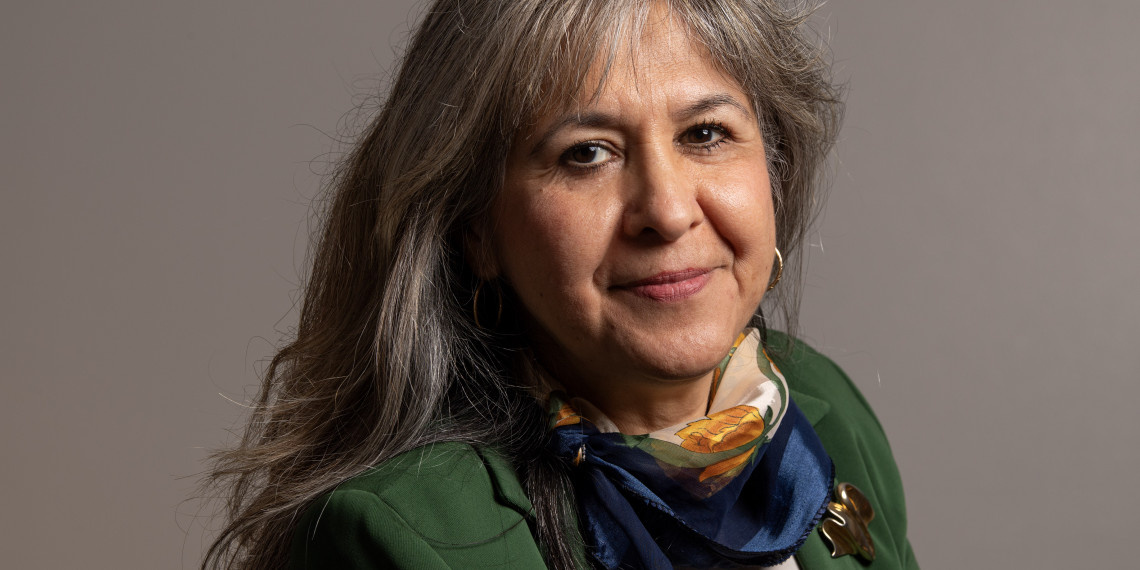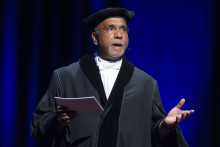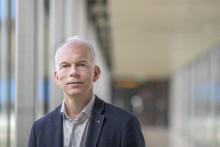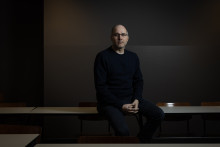Laura Franco-García vividly remembers the moment she decided to be an academic. It was summer, and the ten-year-old Laura was sitting in a public library in her hometown in Mexico State, when her eyes landed on a book about the harmful effects of pesticides. She remembers the name of the book too. ‘Silent Spring’ by Rachel Carson. ‘This opened new doors for me,’ says the Assistant Professor. ‘That book made me aware of the negative impacts to the environment that we create when we are not sufficiently informed of the risks. I wanted more knowledge. I was very motivated to learn, to teach, to discover new things. This, academia, is in my DNA.’
The scientist inside her cannot be switched off. She even conducted a little research project in preparation for the interview for this story. ‘I looked into research on responsible science and into what values drive scientists who want to be responsible,’ she confesses. She ended up writing a three-pages long paper on the topic, covering important values such as integrity, respect, trustworthiness, and transparency. ‘I love what I do. I will retire at some point, because those are the rules, but I’ll stay connected to science. It’s impossible for me to stop thinking. That is how I am myself. In academia, we always like to talk about ideas. Ideas are the oil in my machine.’
‘I’m satisfying the curiosity of the little girl inside me’
It is difficult to say what exactly makes a ‘responsible scientist’, but connection is the key word for Laura Franco-García. ‘In my work, I’m satisfying the curiosity of the little girl inside me. At the same time, I realize that science is not only about me being curious. It’s about developing new knowledge together with others. It’s always about teamwork, combining different fields of expertise, finding new connections and perspectives. As scientists, we can’t be isolated, especially not when it comes to sustainability research. You can’t do everything on your own. You are part of the system and need to frame what you do into the bigger picture.’
The UT scientist loves that academia is all about teamwork, she repeats more than once. Yet, the academic environment is often described as highly competitive. ‘I think that a competitive environment is a good thing,’ reacts Franco-García. ‘We shouldn’t think of ourselves as already accomplished. We should always be open to looking for better ways to do things and try harder. But it needs to be in balance. We also need each other.’
Laura Franco-García’s career in a nutshell
2014 – present Assistant Professor at the Faculty of Behavioural, Management and Social Sciences (BMS), UT
2007-2013 Postdoc position at CSTM Governance and Technology for Sustainability, BMS, UT
2003 - 2006 Director of the sustainable development master’s program and head department of sustainable development, Tecnólogico de Monterrey (Mexico)
1998 – 2002 Teacher and researcher, Universidad Autónoma Metropolitana (Mexico)
1999-2001 Researcher on support of policy making hazardous waste treatment, Ministry of the Environment (Mexico)
1990 PhD in Environmental Chemistry, Université Claude Bernard Lyon I (France)
The work of Laura Franco-García has always revolved around sustainability and the human impact on the environment, but it covers a diverse range of topics, she explains. ‘You could cover my research under the theme Sustainable Management Strategies, which includes technological innovation and product development, but also regional development. For example, I have recently supervised projects on sustainable industrial parks and also circular economy on city level. We work on evaluating the social impact of new developments and try to predict the negative effect of technological innovations. We develop various frameworks and models and then test them in real life, making sure that they are useful and inclusive for real stakeholders.’
Laura Franco-García’s research in a nutshell
Franco-García’s research career started with working for environmental protection consultancy companies in Mexico City. She then obtained a Mexican scholarship to carry out her master’s and PhD on Environmental Chemistry studies in France. Afterwards, she worked for both the Mexican Ministry of the Environment contributing to the hazardous waste regulations and as an academic at Mexican public and private universities. Her research interests then expanded to sustainable management strategies, including strategic fields circular economy, sustainable industrial parks, social and environmental life cycle assessment, and social entrepreneurship.
The topic the scientist is particularly passionate about is social enterprises, meaning sustainable enterprises that do not only focus on products, but also on helping local people. ‘They are not only profit driven, but also generate social benefits, providing opportunities for the local community. I think this interest is related to my personal values,’ says Franco-García. After all, her main driver has always been helping and supporting other people.
‘The idea of something being unfair worries me’
‘I firmly believe that you can do good and fight poverty while generating economic benefits. This might come from my own experience. I have seen a lot of poverty and I have always wondered why the people don’t have decent opportunities to use their talents. We are all equal as human beings,’ she says. ‘The idea of something being unfair worries me. I seek a better world and social enterprises have been proven to help. I love working with them because I like the idea of helping people, even if that is indirectly.’
The ultimate goal of her research is ‘huge’, says Franco-García. True, considering that, fundamentally, sustainability research aims to ensure the survival of the human race. ‘We often say that we are trying to protect the environment, but we are actually working to protect ourselves. The planet will continue to be here with or without us,’ she says. ‘I want to contribute to a more sustainable world. Which is a huge task! That is why we need a collective effort for this. Hopefully together we can come up with smarter ways to provide what we need without harming the environment and ourselves.’







